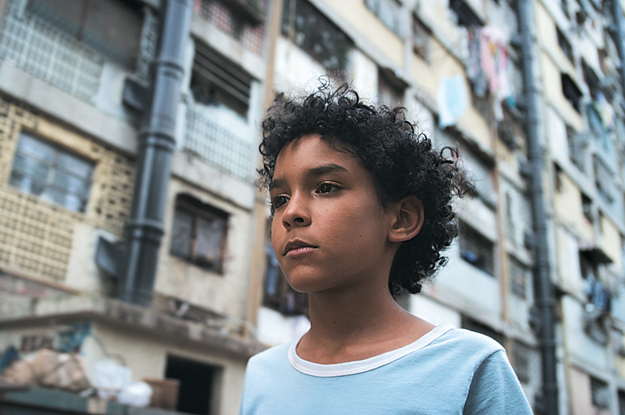As his mother, Marta, pounds on the bathroom door, nine-year-old Junior stares at himself in the mirror, slicking his hair back with water in an effort to undo his tight curls. Junior’s determination to straighten his hair so he can look like his idol, Venezuelan rock star Henry Stephen, is an ongoing source of tension with his mother—and the axis around which reflections on issues of race, gender, homophobia, and violence in contemporary Venezuela revolve in Pelo Malo, a film by Venezuelan director Mariana Rondón.
Pelo Malo, literally “bad hair,” is a term used throughout Latin America to refer to curly, Afro-Latino hair. Like the term, the relationship between Junior and his mother highlights prejudices in Venezuela. Marta, an unemployed widow, breaks gender norms by persistently trying to convince her chauvinistic ex-boss to rehire her as a security guard, a position generally held by men. Yet she is disturbed by Junior’s obsession with straightening his hair, worrying it is a sign that he might be gay. In the end, the agitation between Junior and Marta culminates in mutual apathy, uncharacteristic of a mother-son relationship.
Since its debut at the Toronto Film Festival last September, Pelo Malo has won 41 awards, including Best Film at the San Sebastián Film Festival in Spain. But the film has also aroused controversy in Venezuela, where Rondón says many viewers are uncomfortable confronting the evolving social awareness of race and sexual orientation in their country. “The realism of the film bothers many viewers,” says Rondón, but that makes it a “good first step in having a concrete discussion.”
View a trailer for Pelo Malo here.





